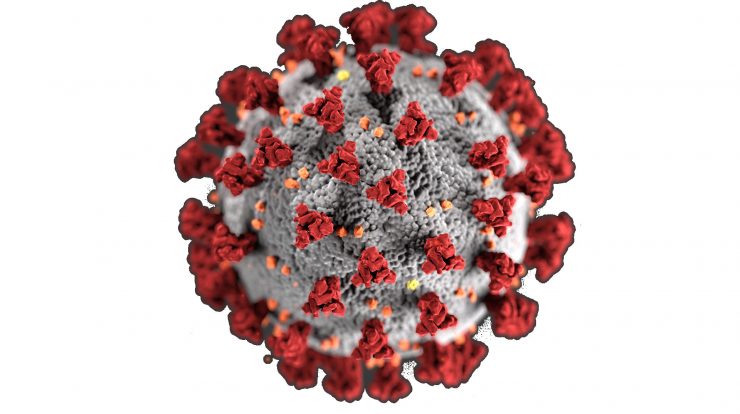
Here in Australia 700,000+ people lost or had their employment drastically reduced (link). The Australian government took an unprecedented step in not only ensuring casual workers (with 1 year of service) were paid, but also enacted a moratorium on rental evictions due to financial hardship.
The machine that spins the economy just had a giant metal stake thrown into it. Now all the interconnected dependencies of financial flows needed to be stopped simultaneously. Newly unemployed can’t pay the rent, which means property investors can’t pay the mortgage, banks can’t pay their shareholders. Every stoppage propagates up the line until it becomes a force majeure that brings the local and global economies to it’s knees. Where to begin to untangle this mess?
In regards to rental situation, the government, in my view, has made the right decision in passing an act to freeze evictions. Losing the ability to do business is hard enough. Not having a roof over one’s head due to a “black swan event” is unfathomable. Any well functioning society ought to put the basic human needs of shelter as a priority when considering mass homelessness. Making landlords face the financial burden by default was always going to lead to a mini uprising.
One way to look at the idea of landlords not being paid rent, is to look at real estate investment as an asset class with similar features to the equities market. Housing appreciates and depreciates which produces capital gain/loss and provides an income via rent. Rent can be applied to a landlord’s mortgage to produce a profit (postive gear) or small tax incentive where rent doesn’t cover mortgage payments (negative gear). Rent in many ways are equivalent to dividends that shares pay out to their shareholders. In tough times dividends may be reduced or in financial calamities may be scrapped altogether. There are plenty of precedents where dividend payments have been withheld. Flight Centre, Qantas and Webjet have withheld or cancelled in light of COVID-19
Landlords ought to be exposed to such externalities. If anything, landlords generally have no issue with ongoing income streams except maybe in cases of bad tennants etc.
Banks also should also (as many have) put the brakes on mortgage repayments via a short term reprieve. All of the dependencies from top to bottom have to be stopped similtaneously. Commercial shopping leases shouldn’t be expected to pay rent with no staff and no business, but occurs with some unscrupulous shopping centres expecting their cut despite the obvious unavoidable downturn. This is where government must step in.
Every link in the chain, every downstream dependency by hook or by force needs to work in lockstep. When we come out the other end, the stake is removed from the gears, the whirr and the hum of the system gradually springs to life again.
Another thing I’ve noticed. Every calamity needs to have their pariah, scapegoat, punching bag. During the Australian bushfires Scott Morrison filled that role. Holidaying in Hawaii, even when the holiday was booked months ago, does not bode well for public perception, where all boots on ground is the mantra. Even if not in a literal sense, people want their leader on call and ear to the ground. Scott Morrison has shown leadership and determination and empathy during this pandemic and has largely been forgiven in the public eye. In America, trying to pin restlessness and frustration to something a little less nebulous than the government has given us 2 new pariahs. Bill Gates and Dr Fauci. Despite both having their best interests in eradicating disease long before this pandemic broke out, many have chosen these two by threading a number of stories to make it look as though the ushering of the new world order is soon at hand! I’m not one to shy away from conspiracy theories, but this one does not pass the sniff test by any means.
Government here and around the world has faced ridicule around the world due to their often inconsistently applied rules, restrictions and timings. ScoMo announced early in the piece that schools are to be kept open. Possibly the reasons were to keep parents in work, esp. those who work in the medical sector. Keeping parent’s at home further exacerbated the economic shut down, and additionally there was at least some speculation that children aren’t as susceptible to the virus.
On the other hand, Gladys Berejiklian countered the federal mandate by announcing that they will be taking action to the contrary. Kids now will stay home! Her reasoning, kids may not show the symptoms but are good at spreading it. If Parents go to work and grandparents look after the children, the elderly being particularly at risk, then there’s a risk factor that cannot be overlooked.
It brings to the point that everyone handling this crisis is doing their best. There will be inconsistencies. When I visit Aldi people space apart by 1.5m but are all huddled together in the centre aisles poring over fleecy jackets or garden plants etc. A lot of it is what Bruce Schneir would call “security theatre”. The act of appearing to earnestly follow rules to prevent the negative, but in fact there are enough loop holes to drive a truck through. Another case in point, all outside gym equipment in my park is taped off. The equipment appears to be about 2 metres distant from other equipment. But that doesn’t mean that we find one flaw to invalidate all other restrictions. In totallity the over zealous nature of our restrictions has probably saved us from copping the full brunt of it.
This is where the deliberative vs reflexive decision making plays a role. By staying put for twice as long we get to our freedom quicker. By trying to reach freedom quicker (by disobeying or lack of government control in reopening to quickly or ceding to state demands) the result may end up being a longer more painful road ahead.